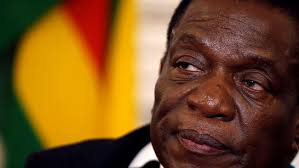APA-Addis Ababa (Ethiopia) African Union (AU) Commission Chairperson Moussa Faki Mahamat has called for the “immediate and unconditional” lifting of all sanctions imposed on Zimbabwe.
A statement issued Wednesday by the continental organisation quoted Faki as saying that the AU, once again, renews its longstanding demand for the immediate and unconditional lifting of sanctions imposed against institutions and individuals of Zimbabwe.
The chairperson also expressed the AU’s “full support” of the Southern African Development Community (SADC)’s position on the issue.
In 2019, the regional bloc SADC declared October 25th “Anti-Sanctions Day” for member states to stand in solidarity with Zimbabwe and collectively call for the unconditional lifting of the embargo.
Faki acknowledged subsequent engagement with the European Union (EU) through political dialogue as encouraging.
He encouraged all parties to continue dialogue with a view to ending all remaining sanctions against Zimbabwe.
“The Chairperson, however, remains extremely concerned by the negative impact the sanctions continue to have on Zimbabwe’s socio-economic development amid the current global food and energy crises, including post Covid-19 recovery efforts,” the statement said.
Faki reaffirmed the continued commitment of the pan-African bloc to support Zimbabwe in mobilising efforts for the complete lifting of all remaining sanctions.
He further said the AU associates itself with the latest statement made by Joao Lourenco, president of Angola and current chairperson of the SADC, calling for the lifting of all sanctions against Zimbabwe.
In a statement issued the same day, Lourenco said the appeal by the SADC for the immediate lifting of sanctions against Zimbabwe rests on the backdrop of growing concern over the impact these punitive measures continue to pose on the country and the SADC region as a whole.
Zimbabwe has been reeling under unilateral sanctions from Western countries led by the United States.
The sanctions were imposed in 2000 after Zimbabwe embarked on a controversial land reform program during which the country re-possessed land from minority white farmers for redistribution to landless indigenous Zimbabweans.
MG/as/APA


